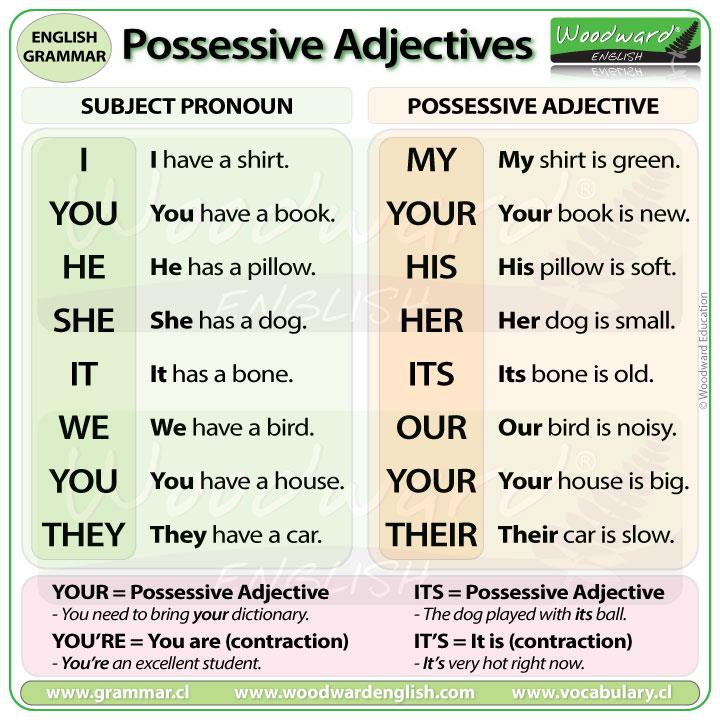Esta ronda nos encontramos para explicar un poco sobre los possessive pronouns....mine, yours, his, hers......
Possessive pronouns are a type of pronoun that indicate possession, that is, they tell us who something belongs to.
Which possessive pronoun should we use?......To use a possessive pronoun we will have as a reference the personal ponoun to which the possessor corresponds.
I - my / mine (of me)
You - yours (of you)
He - his (of him)
She - hers (of her)
It - its (object or animal)
We - ours (of us)
They - theirs (of them)
To start let's see some rules.....
- This pronouns vary according to the possessor and not according to the possession.
e.g. Mary has a dog - The dog is hers.
(In this example, the owner of the dog <possessor> is a girl, so the corresponding possessive pronoun is hers)
- Possessive pronouns do not precede a noun.
e.g. I have a pencil - This is my pencil.
(In this example we use a possessive adjective <my> because ir precedes a noun <pencil>)
e.g. I have a pen - This pen is mine.
(In this example we use a possessive pronoun <mine> because it doesn't precede a noun)
- Possessive pronouns are used as the subject of a sentences to avoid unnecessary of information.
e.g. This is my book, yours is there.
(In this example, yours replaces your book, which makes the sentence shorter and allows us not to repeat information we already know.)
- We don't use a, an, the, this, or that before possessive pronouns.
- Don't confuse its (of it) with it's (short for: it is o it has).
In English you don't have to change the form of nouns into different cases, except for the possessive.
How to use the Saxon Gentitive:
singular nouns + 's = a boy's tie, the dog's tail
plural nouns + ' = boys' ties
nouns with irregular plurals + 's = men's trousers
nouns that end in s + 's = Dickens's novels
This form od possessive is easy to learn. There are not many different types of nouns to remember:
- Names of people and types of animals = John's sisters, the cat's name.
- Ideas of time, space and value = two hours', rest.
- Names of countries, towns, seas, planets = Poland's youth, London's monuments.
And last but not least, we have another pronoun that is very rare.... WHOSE
Unlike the others possessives, whose is not a personal pronoun but it's interrigative or a relative pronoun. It can also be used as an interrogative or relative determiner.
- Interrogative pronouns and determiners introduce a direct or indirect question.
- Relative pronouns and determiners introduce a relative clause that provides more information about a noun phrase.
Examples:
- His car - the car of him.
- John's car - the car of John.
- Her mother - the mother of her.
- I wonder whose entry will win the competition.
- Helen's mother - the mother of Helen.
- My mother's sister - the sister of my mother.
- The chair, one of whose legs has fallen off, is quite unstable.
- Kate's sister - the sister of Kate.
- Whose is this flask?

<<< Les ofrezco algunos links donde pueden encontrar actividades para repasar lo aprendido en este blog >>>

